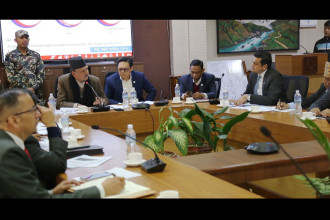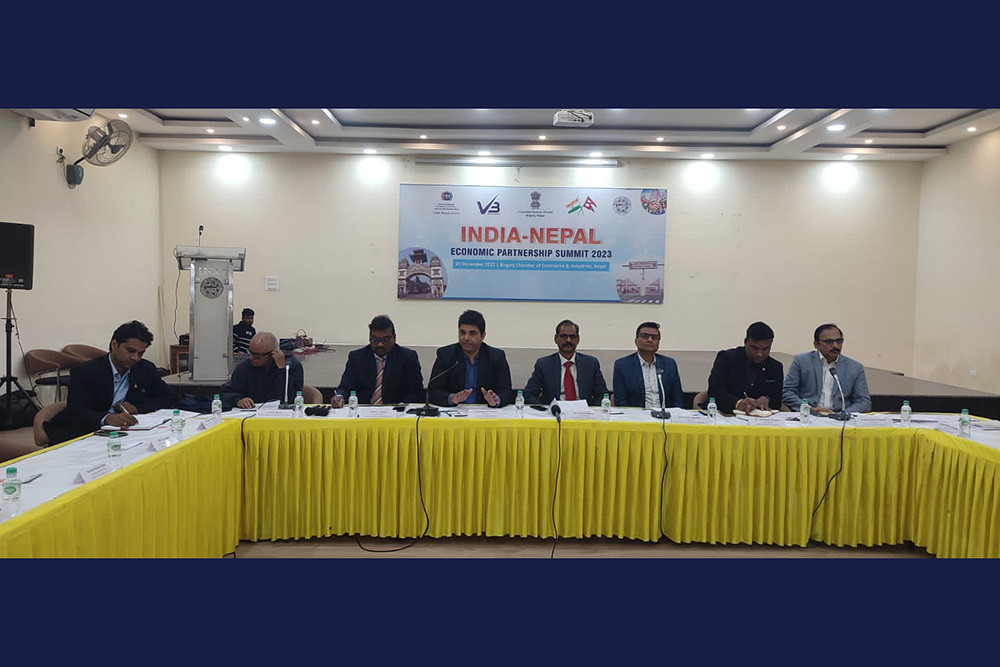.jpeg)
KATHMANDU: Aloi, a software company that is working on digitally monitoring loan expenditure and repayment through verified merchants and deposit points, on Friday organised a programme titled 'Greener Investment, Charged Future: Celebrating Nepal’s Electric Mobility'.
Around 130 people including representatives of various microfinance, banks, cooperatives, NGOs, INGOs, Aloi partners and media partners attended the event partially funded by the National Geographic Society.
Aloi CEO and Co-Founder Tiffany Tong delivered the welcome speech at the programme held in cooperation with Bijuli Power Nepal, a part of Aloi, working as a fintech company, providing accessible financing to electric vehicle mobility for micro-entrepreneurs in the informal sector in Nepal.
Addressing the programme, Tong asserted that Aloi’s goal is to build a green economy for all and stated pointing towards the audience, "The star of today’s event is you. Because you are the ones who are growing the ecosystem of the green economy in this country. You are the ones to make sure that economic development does not only occur at certain levels but at all levels. You are a representation of our system.”
Tong explained, "Aloi’s vision is supported by three pillars, one is that we make sure there is commercial sustainability, finding commercial solutions to commercial problems, focusing on the businesses, especially the micro-businesses and finding win-win solutions. The second pillar is technology and data and the third one refers to green investment.”
Special guest speaker Saroj Nepal, National Programme Coordinator, UN Capital Development Fund, said, "We work for the promotion of financial inclusion and inclusive digital economy in Nepal. We have been supporting tech businesses and working to expand the businesses from marginalised sectors. “Every year, UNCDF publishes an inclusive digital economy scorecard through which we look for how the digital economy in any country is growing under four pillars — policy, innovation, infrastructure and skills,” he said.
He emphasized the importance of digital knowledge among people and stressed the need to convert financial literacy to digital financial literacy. "You may never know when you can lose the money inside your cell phones. Therefore, digital financial literacy is necessary for those who are vulnerable.”
Aloi Chief Product Officer Riwaj Ranjitkar said, "Till now we have provided training on financial literacy to 2,250 individuals among which 90% are women. We are planning to expand this training model by providing more digital training materials.”
The event featured a panel discussion titled, "Powering Sustainable Futures: Intersections of Finance and Electric Mobility in Nepal.” Federation of Nepalese National Transport Entrepreneurs (FNNTE) President Bijay Bahadur Swar; EV Transportation Entrepreneur Indra Maya Shrestha; Nepal Rastra Bank (NRB) Deputy Director Prahlad Giri; Head of Retail Lending at Nabil Bank, Chandani Shrestha; Upaya City Cargo representative Melisha Rajopadhyaya were the speakers for the discussion. The discussion was moderated by Bhusan Tuladhar, chief of party, USAID Clean Air at FHI 360.
Talking about the challenges of electric vehicles, FNNTE President Swar said, "Protection to the investment made and the sustainability of EV are the main challenges. We can only be safe if the loan taken for the public transportation investment is issued as a project loan." He suggested, "This is only possible if the government takes the lead and the government must do that because travelling is the basic needs.”
“It took almost two years for Nabil Bank to ensure the bank is doing the investment correctly. Previously, the bank spent a really tough time researching the actual investment scenario of the EV market. Observing the acceptance of EVs by society, the bank decided to provide support and be the pillar for green investment. Bank has realised that financing public electric vehicles will be the right choice,” shared Shrestha, Head of Retail Lending at Nabil Bank.





